thebasehrbi-blog
1K posts
The BASE is a peer-led sexual health education program serving East Harlem. Likes, follows, and reblogs are not necessarily endorsements. Ask The BASE!
Don't wanna be here? Send us removal request.
Photo

The BASE program was started in 2010 by a group of young leaders who were passionate about their community, passionate about pushing themselves to be strong leaders, and passionate about sexual health education. Since its inception, The BASE has not only reached all over East Harlem, but stretched into the rest of Manhattan, Queens, the Bronx, and Brooklyn.
Our youth leaders have taught curriculums like Being a Responsible Teen--helping community youth navigate safe sex and reducing the incidence of HIV/AIDS through education--and taught workshops such as The Talk, where we spark conversation among adults to help foster open and honest communication with their children about sex ed and beyond. Most recently, The BASE wrote and implemented the Too Much Information workshop, helping youth use social media safely and effectively.
We've partnered with other community organizations and local businesses for campaigns such as It's A Safe Thing, providing youth with free barrier protection in youth-friendly environments, or our recent Talk About It campaign geared towards starting conversations about HIV status among young LGBT men of color. Our youth leaders have engaged young people to encourage regular STI screening, and been able to refer them to free services in the community through our Step Up! campaign.
The BASE has actively participated in numerous events including youth conferences and large scale affairs such as the 116th Street Puerto Rican Day Festival and AIDSWalk New York. We’ve held yearly events for days like National Youth HIV/AIDS Day, National Black HIV/AIDS Day, and World AIDS Day, even having some of our youth leaders selected to speak on panels for the Department of Health’s World AIDS Day observance.
On May 30th, 2015, The BASE program will be closing its doors. We’d like to thank everyone who’s used us as a resource in person and online; you are why we’ve done so much to be proud of in the last five years.
We would like to leave you with a list of other valuable resources:
Latino Pride Center
“The mission of the LPC is to inspire, empower and support gay Latinos to build and pursue their lives to their full potential.This mission will be pursued through the creation of health and human services programs that affirm individuality, sexual identity and diversity; build family and community life; advocate for equality and justice; and support the pursuit of happiness free of oppression and violence for all people.”
The LPC provides workshops and HIV testing and counseling.
Planned Parenthood NYC
“For more than 90 years, Planned Parenthood of New York City (PPNYC) has been a beacon of hope for the thousands of women, teens, and families who rely on us for essential reproductive health care, innovative educational programs, and effective advocacy.”
Planned Parenthood NYC provides breast and cervical cancer screening, GYN care & testing, birth control, pregnancy testing and counseling, surgical and medical abortions, STD testing and treatment, HPV vaccines, HIV testing and counseling, emergency contraception, and health insurance enrollment.
Iris House
“Iris House saves lives through comprehensive support, prevention and education services for women, families, and under served populations affected by HIV/AIDS and other health disparities in a safe, family-centered environment by passionate, professional and culturally competent staff.”
Iris House provides HIV testing & counseling.
DayOne
“Day One partners with New York City youth to end dating abuse and domestic violence through community education, supportive services, legal advocacy and leadership development.”
Day One provides workshops, counseling and legal support for youth experiencing intimate partner violence, and resources.
Mt. Sinai Adolescent Health Center
“Our unique, New York City-based program delivers comprehensive, integrated medical and mental health services and prevention education to young people aged 10 to 22.
We are the largest center of its kind in the United States providing confidential, quality health care and support services to underserved and at-risk youth, regardless of their ability to pay.”
The Adolescent Health Center provides primary health care, counseling, STI screening and treatment, dental care, and nutrition, fitness, and wellness programs.
Harlem United
“Our mission is to provide 100% access to quality HIV/AIDS care for all our clients, regardless of race, socio-economic status, or sexual orientation; To ensure that each of our clients remains connected to treatment and obtains the best possible health outcomes; To provide quality HIV prevention, housing, and care services in a safe and nurturing environment; To unite Harlem’s diverse communities and address the needs of all people living with and threatened by HIV/AIDS; To empower our clients physically, emotionally, socially, and spiritually.”
Harlem United provides HIV testing and counseling.
William F. Ryan Community Health Center
“The four centers in Manhattan that make up the Ryan Network support culturally diverse communities most in need of medical assistance. Part of the Community Health Center movement, the Ryan Network strives to provide affordable, quality medical services at a fraction of the cost. Patients can expect to be treated with dignity, confidentiality and respect.”
The Ryan Center provides low- to no-cost HIV/STI testing.
East Harlem Teen Health Project
“Our mission at THP is to help reduce the rates of teen pregnancies, HIV/AIDS, and STIs in East Harlem via community awareness, educational workshops, and events. We periodically conduct parent workshops, financial literacy courses, healthy living courses, and college trips for our teens. We also offer a paid internship to a group of teens, every 6 months, to be a part of our Teen Health Council. The council consists of 12 peer leaders who help organize and facilitate community events, as well as host “information parties” for their friends.”
THP provides workshops and services similar to those provided by The BASE.
#good bye#closing#The BASE#THP#harlem united#east harlem teen health project#ppnyc#planned parenthood#resources#bye bye#ryan center#ryan network#mt. sinai#mt. sinai adolescent health center#dayone#ipv#dv#iris house#hiv#aids#hiv testing#sti testing#std testing#sti#std#latino pride center#lgbtq#lgbt#sexual health#sex ed
13 notes
·
View notes
Link
The first kits that allow people to quickly test themselves for HIV have gone on sale in the UK.
71 notes
·
View notes
Text
How did I get a UTI, and how can I prevent them in the future?

Someone asked us:
I have a question, I recently lost my virginity and now I’ve developed a UTI. Did the sex cause it, or was it just a coincidence? If it was the sex, how can I prevent it from happening in the future?
There are a lot of things that can up your chances of getting a UTI. The sex may have contributed to it, or it may have been something else. A UTI can happen anytime bacteria comes in contact with the vulva or urethra. But you’re definitely not alone! About 1 in 5 people with vaginas will experience a UTI at some point in their lives. Anyone with a penis can get a UTI as well, although it’s less common since the urethra is farther from the bladder (so it’s harder for bacteria to reach the bladder), and the urethra is farther from the anus (so it’s harder for bacteria from the anus to spread to the urethra). Rarely, a UTI can be caused by an STD, so make sure to get tested regularly for STDs since you’re having sex.
Here are some tips on how to keep those UTIs at bay:
Urinate immediately before and after sex.
Use condoms during vaginal sex.
Drink whenever you feel thirsty.
Urinate as soon as you feel the urge. Don’t hold it in!
Keep your vulva clean and dry.
Drink unsweetened cranberry juice or take cranberry supplements. (Cranberries contain an acid that helps prevent bacteria from growing.)
If you have recurring UTIs, talk with a doctor or nurse about what might be causing them and if there’s anything more you can do to avoid them. The staff at your local Planned Parenthood health center can help.
Feel better!
-Kellie from Planned Parenthood
606 notes
·
View notes
Photo
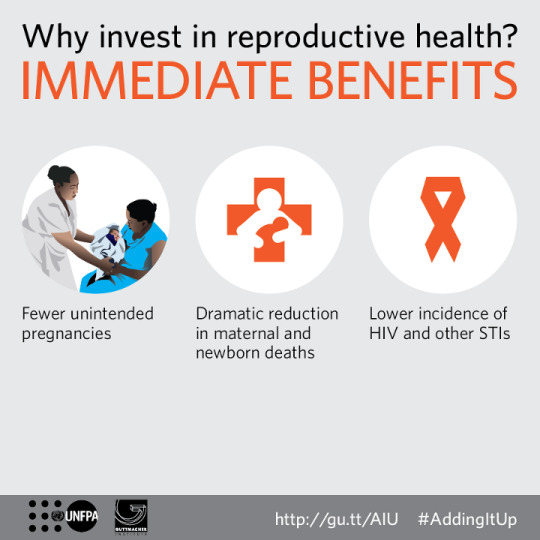
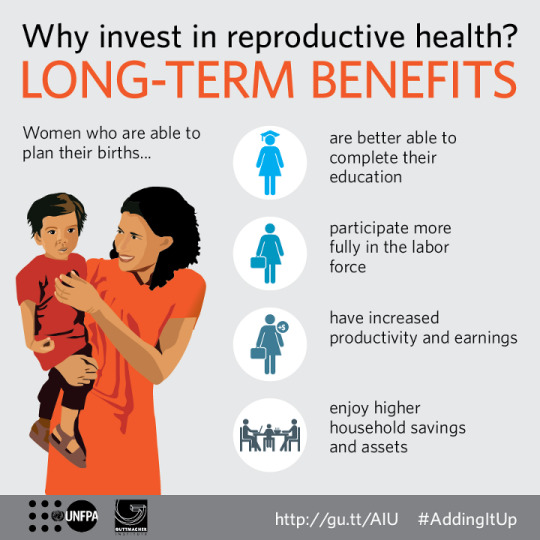
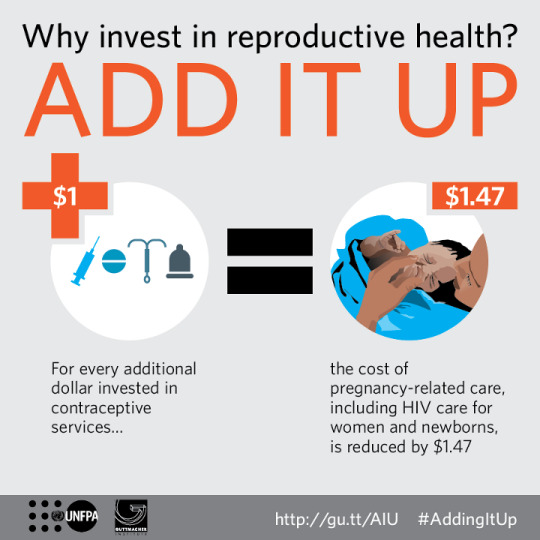
When we invest in reproductive health care — like birth control, STD testing, and cancer screenings — we ALL benefit.
graphics from guttmacher
2K notes
·
View notes
Photo
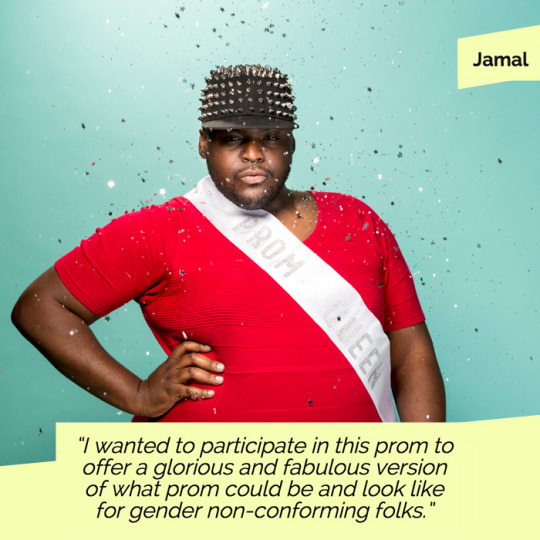
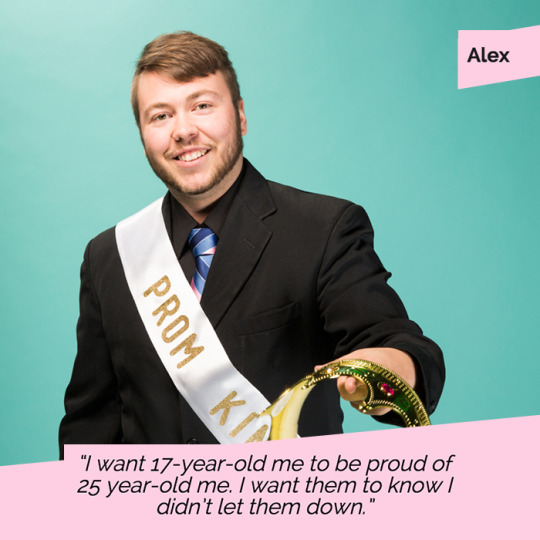
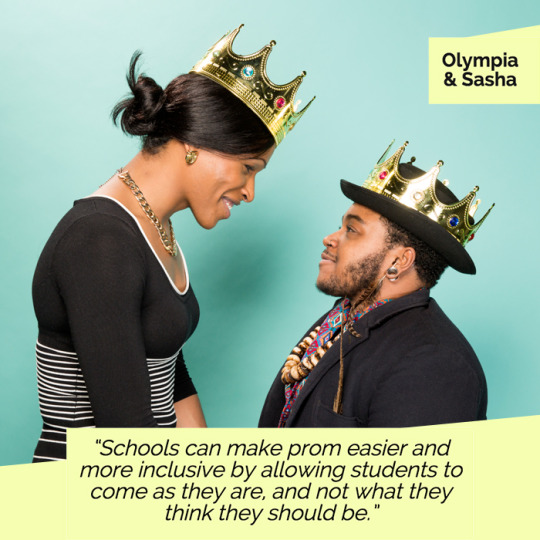
a prom to de-gender is a prom to remember. read their awesome stories>>
436 notes
·
View notes
Photo

At the Center for Sexual Pleasure and Health we work to fight sexual shame by advocating for diversity in sex education. When it comes to education, no one should be kept in the dark. Consider donating $5 so that everyone can receive the sex education that suits their needs. Click the link in our bio our go to bit.ly/CSPH5for5 via Instagram http://ift.tt/1JSp3h3
#diversity#representation#sex ed#diverse sex ed#inclusive#inclusive sex ed#sexual orientation#gender identity#race#racial inequality#positivity
462 notes
·
View notes
Photo

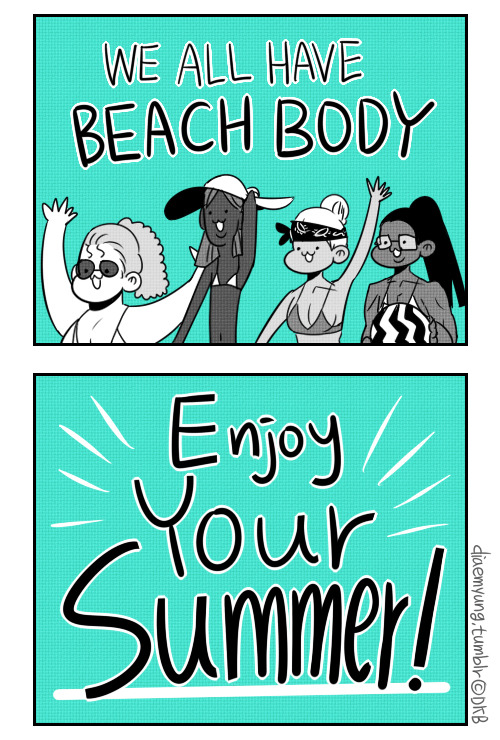
Enjoy your summer!
By Diae Myung [tumblr | portfolio | twitter]
210K notes
·
View notes
Text
Can I get the abortion pill if I think I’m pregnant?
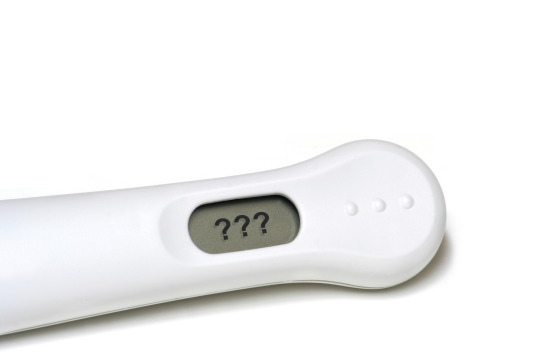
Someone asked us:
If I had unprotected sex took the day after pill but still haven’t gotten my period can I go to my health clinic and request for an abortion pill even though I’m not 100% positive of being pregnant?
It was smart of you to take emergency contraception. The morning-after pill is safe and effective, and can prevent pregnancy up to 5 days after unprotected sex. One of the possible side effects is a change in your next period — it being earlier or later than usual, or heavier or lighter than usual. If you don’t get your period within 3 weeks of taking emergency contraception, then it’s time to take some next steps.
A doctor or nurse can’t give you the abortion pill unless they know for sure that you’re pregnant. So you’ll have to visit a health center and take a pregnancy test first. In most states, the abortion pill can only be taken before your pregnancy reaches 9 weeks. If you’re past 9 weeks, you can still get an in-clinic abortion.
The doctors and nurses Planned Parenthood will help you figure out if you’re pregnant and can walk you through all of your options. You can also buy a pregnancy test at the drugstore and take it at home. Pregnancy tests are most effective if you take it after you miss your period. Make an appointment to visit your local health center here.
I hope that helps!
-Chelsea @ Planned Parenthood
576 notes
·
View notes
Photo

Can you go swimming if you are on your period?
Yes! There’s no medical reason why someone can’t go in the water when they are on their period. Some people might feel nervous about using a pad, tampon, or menstrual cup at the pool or beach. If you are going in the water, a tampon or menstrual cup might work better than a pad, since water might absorb into the pad and reduce its stickiness.
24 notes
·
View notes
Note
Signs of emotional abuse? The technical terms are so stiff
Hi dear. I’m in a sex-positive comedy troupe on campus and we actually did a skit about signs of emotional abuse this semester so I would be glad to help you out. Signs include:1) your partner has to know where you are, who you’re with, and when you’re coming home every time you go out without them2) your partner tries to control what you eat, how you dress, or other aspects of your personal life3) your partner tells you they don’t want you seeing your friends anymore (for any reason)4) your partner explodes with anger if any of these “rules” are broken and then apologizes claiming that “they just care about you so much”5) your partner threatens to do something (kill themselves, tell someone something you don’t want them to know, etc) if you break up with them6) your partner says things like “no one will ever love you like I love you. You can’t break up with me because no one else will want you”
There are of course other signs but if you’re ever feeling controlled, trapped in a relationship, or isolated, these are definite signs of emotional abuse and you should seek help and try to get out of that relationship immediately.
-lil
13 notes
·
View notes
Photo
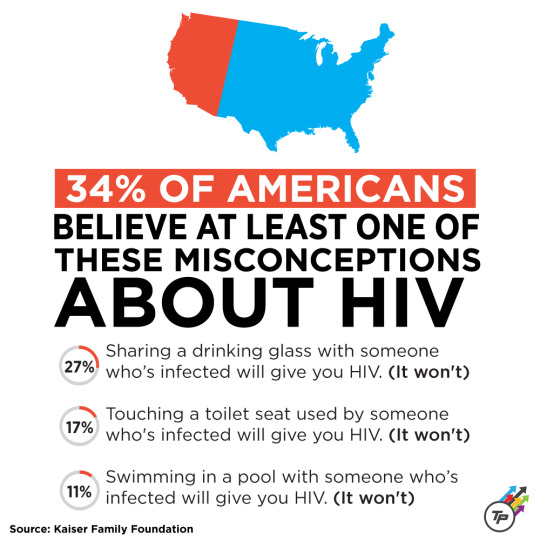
Indiana’s Record-Breaking HIV Outbreak Reveals Old Myths About The Virus
As Indiana struggles to address the worst HIV outbreak in the state’s history, public health officials are encountering decades-old misconceptions about a virus that has a complicated relationship with stigma and shame.
1K notes
·
View notes
Photo
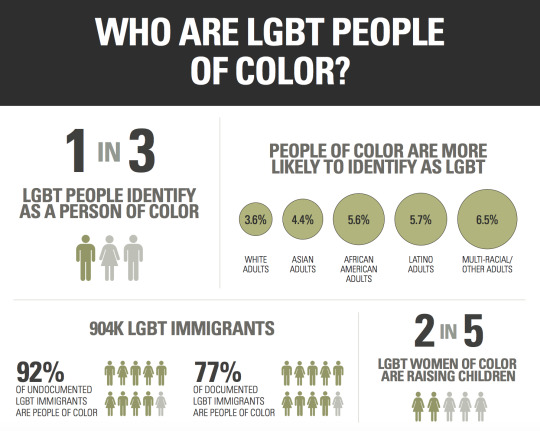
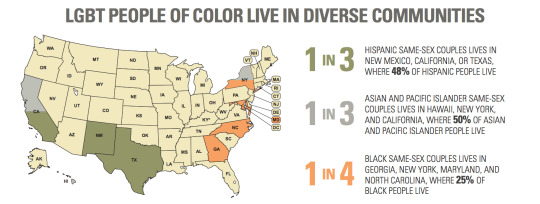
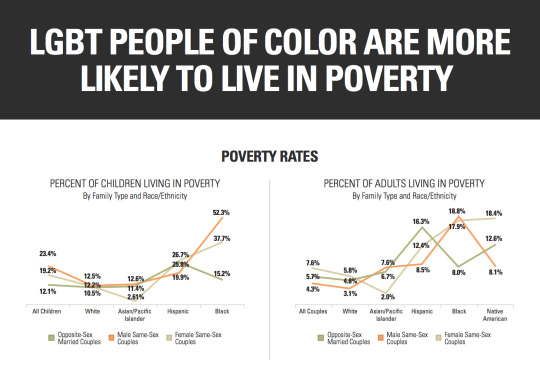
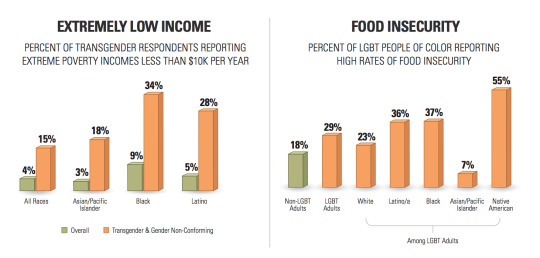

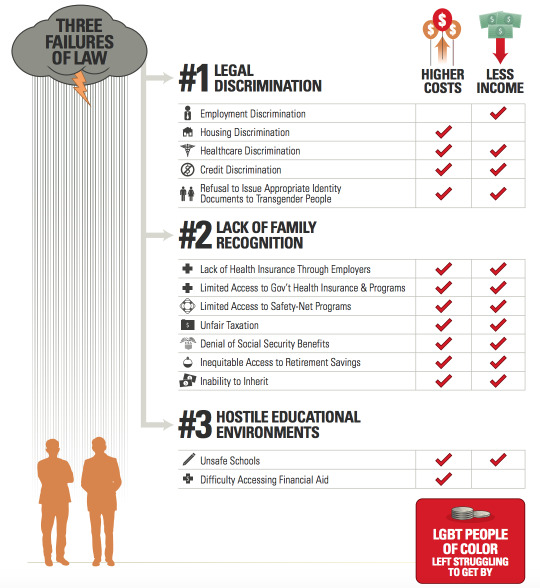

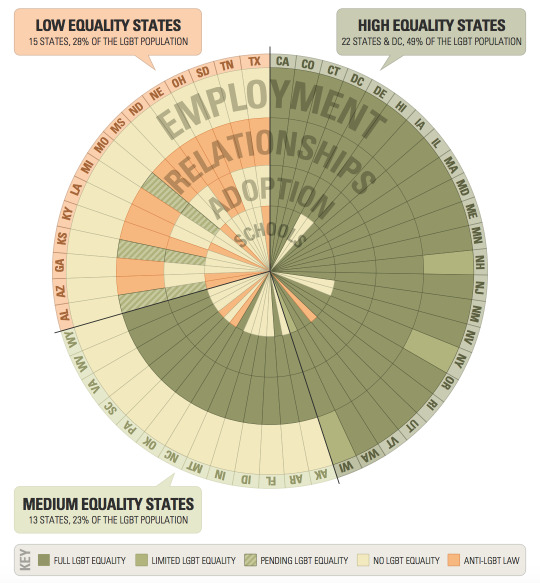
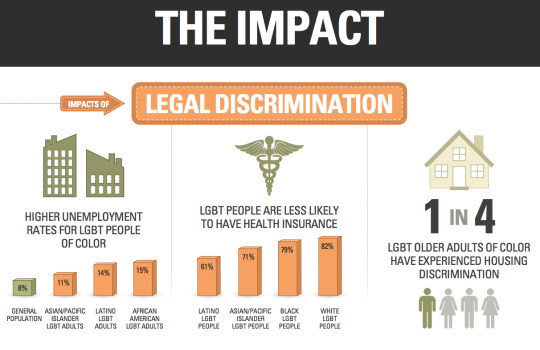
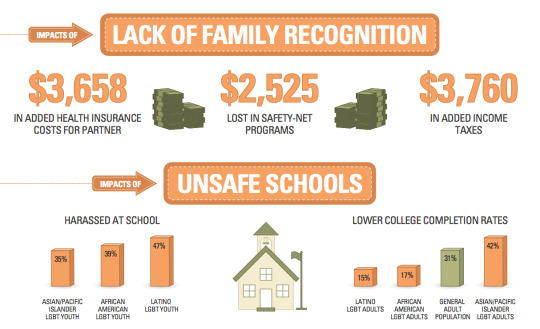
LGBT people of color face systemic discrimination and inequality in housing, healthcare, employment, family recognition, education, and countless other ways. Paying an Unfair Price: The Financial Penalty for LGBT People of Color is a new report by the Movement Advancement Project that examines the ins and outs of political, financial and legal landscapes for LGBT people of color. Read the full report here.
21K notes
·
View notes
Text
What STDs are Americans (and Brits) googling most?
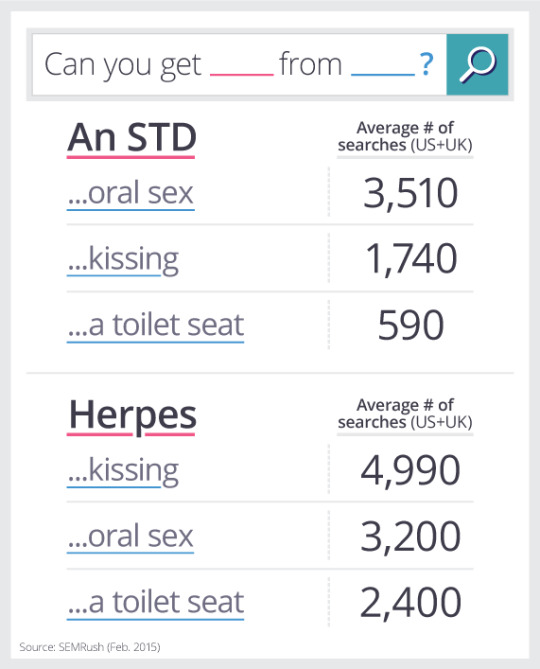
What have you been googling lately?
via Fusion
132 notes
·
View notes
Photo
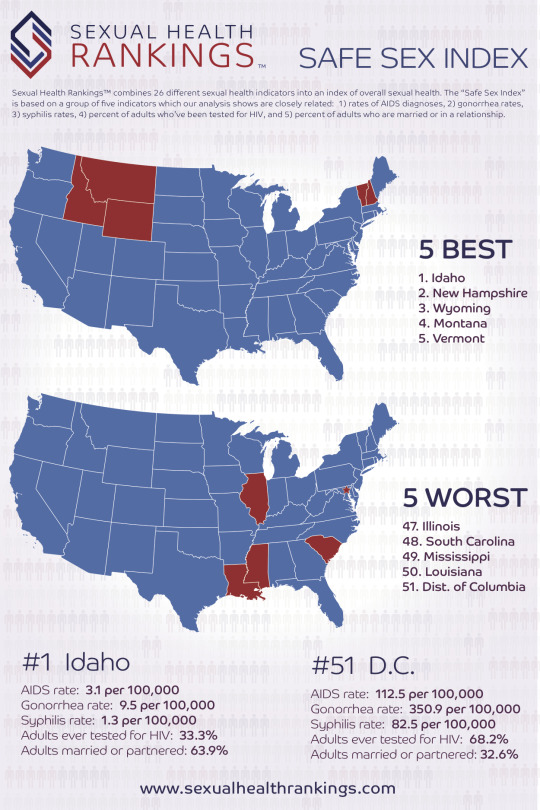
Introducing our first infographic, the Safe Sex Index! Tell us what you think, and let us know what you want to see for future infographics!
126 notes
·
View notes
Link
At least once every couple of days, someone posts or writes into Scarleteen reporting that vaginal entry – usually intercourse or manual vaginal sex, and usually (but not always) with male partners -
33 notes
·
View notes
Photo

Violence Against Transgender People and People of Color is Disproportionately High, LGBTQH Murder Rate Peaks
The murder rate of people who are lesbian, gay, bisexual, transgender, queer, and HIV-affected (LGBTQH) is at its highest, according to a recently released 2011 report from the National Coalition of Anti-Violence Programs (NCAVP). The report also shows that transgender women, people of color, and youth and young adults are at a disproportionately high risk of being victims of what the NCAVP terms hate violence.
PLEASE SHARE.
5K notes
·
View notes
